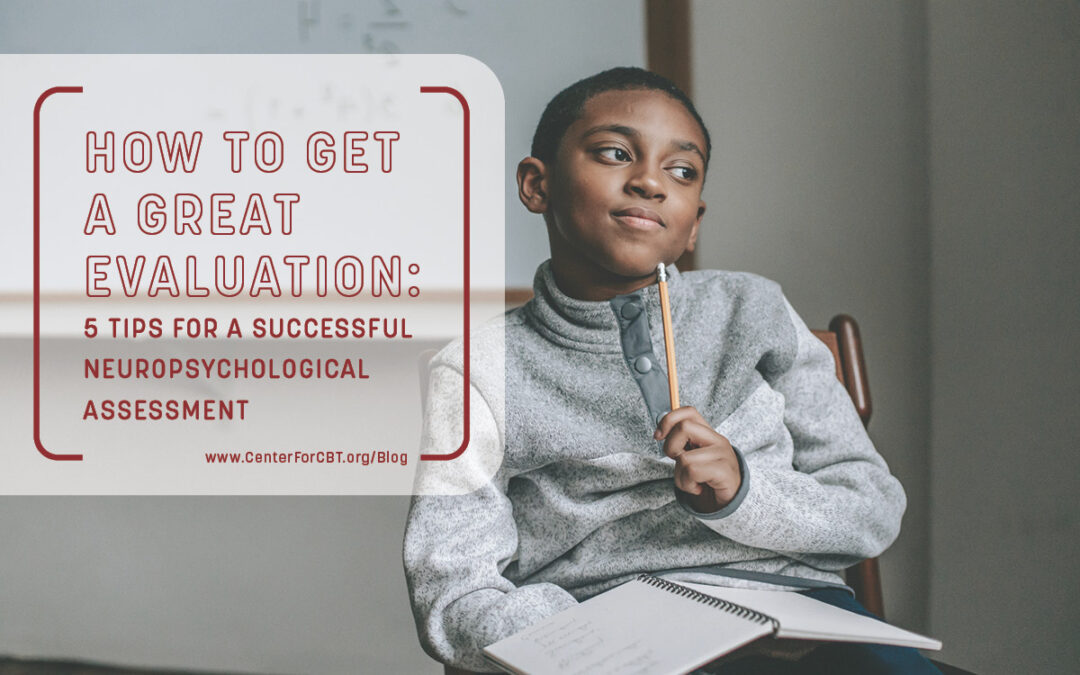It’s no secret that children and adolescents are complex. When your child is struggling, finding the source can feel impossible. Does your child find it difficult to focus? Are there learning or executive functioning issues? Whatever your child’s struggles are, a comprehensive neuropsychological evaluation can help. These assessments clarify the issues your son or daughter is facing and provide a path to a successful, well-adjusted life. If you’re ready for a neuropsychological evaluation for your child, here are a few tips to remember.
1. Choosing a Pediatric Neuropsychologist
Pediatric neuropsychology is a unique specialty within clinical psychology. These clinicians must have extensive training in order to practice in this area. Many specialize in this work during their education. Then, they complete a formal pediatric neuropsychology post-doctoral fellowship after graduate school. Most clinicians have a description of their background and training on their websites. If not, ask over the phone about their training and previous experience. It’s crucial your evaluator has the knowledge and expertise required to complete your child’s comprehensive assessment.
2. Ensure Your Evaluation is Comprehensive
Your child’s neuropsychological evaluation should leave no stone unturned. A comprehensive approach should assess more than your child’s intellectual functioning, academic skills, and social-emotional functioning. A true neuropsychological evaluation also looks at the complete picture of your child. They assess language development, visuospatial/visuomotor skills, executive functioning, attention, memory, and much more. The right pediatric neuropsychologist will look at all of this in order to have an accurate understanding of all the components contributing to your child’s difficulties. Don’t be afraid to ask your clinician about the areas being assessed. If the areas mentioned above aren’t listed, you may not be receiving a comprehensive assessment.
3. School Observation
A significant part of any comprehensive neuropsychological evaluation is school observation. This should occur before your clinician formally meets your child. School observations give pediatric neuropsychologists an opportunity to see your child in a natural setting. They’re valuable pieces of a comprehensive assessment. These observations give clinicians a chance to see your child’s academic program in action. They can also observe the structured social environment that schools provide. This offers deeper insights into what sort of strategies are effective for your child and what other interventions could be beneficial. Be sure to ask your clinician if a school observation is available as part of your child’s neuropsychological evaluation. All comprehensive assessments should provide this service.
4. Provide Records
Your clinician should have a detailed understanding of your child’s history. This means he/she needs access to all relevant records, including previous neuropsychological and psychoeducational evaluations. Clinicians also need speech and language assessments, occupational and physical therapy records, and any early intervention assessments. The more detailed information you can provide on your child’s history, the better. Be sure to include a copy of your son or daughter’s Individualized Education Plan (IEP) or his/her 504 plan. School records are also useful. You can give your clinician copies of your child’s report cards, work samples, etc. It’s also important to submit any relevant medical records from physicians and other professionals treating your child (e.g., therapists, psychiatrists, neurologists, etc.). If possible, submit these records before your initial appointment. This gives your clinician time to review all relevant information and tailor the evaluation to your child’s specific needs. If you haven’t done so already, many families find keeping a binder or folder with these records in one place extremely helpful.
5. Share the Report
Sharing the results of your child’s neuropsychological evaluation is vital. Share the report with your child’s school, their physicians, and any other professionals who regularly work with your son or daughter. Not only does the report help others better understand your child, but it also provides recommendations for how to best support your child’s learning and development. Your child will benefit the most if all the adults in his/her life are on the same page and work together as a team.
What’s Next?
After your child’s assessment, it’s possible a follow-up neuropsychological evaluation is needed. Follow-up evaluations give clinicians a chance to monitor your child’s progress and implement additional interventions if needed. As your child grows, so do his/her challenges. Academic demands increase. Social and emotional conditions change. These changes could mean he/she needs different approaches. Clinicians may recommend a re-evaluation one to several years after your initial appointment. Aside from providing the above benefits, re-evaluations also allow clinicians to compare your child’s neuropsychological results with previous data and any prior assessments. It’s important to remember your clinician is one of many members of your child’s success team. Always keep in mind a good neuropsychologist should be available for collaboration with others. This is an essential part of quality work and ultimately will be the best for you and your child.
Want To Know More About Neuropsychological Evaluations?


